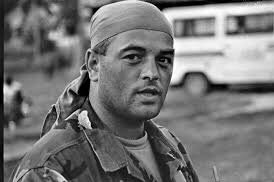
It’s not what many people might think, that they were fighting with their backs against the wall and had no other choice.
When you look at the war in Bosnia, at all its different stages and places, you can easily find examples from all the warring parties where weaker units were able to build up an effective defense.
On the other hand, there were also many episodes where a side fought much less than they could have done and retreated early. This includes the Bosniaks and their military, the Army of Bosnia and Herzegovina (Armija BiH)
Having fought with and against the Armija, here a few observations:
During the Bosnian War, there were often unique tactical situations. While one side had the upper hand in one sector, it was weaker in another.
The Bosniaks, for example, together with the Croats, had a tight grip around the Serbs at the Brçko corridor. This was the Serbs’ only and vital landline to support their troops in Central Bosnia. There was often heavy fighting but no decisive big scale-military operation had ever been executed to close this corridor.
The reason for this wasn’t the military resistance of the Serbs but something else. While strong in Brcko, both, Croats and Bosniaks, had their own troops in jeopardy in other areas.
There was Bihac in the West and especially the capital of Bosnia, Sarajevo. A tacit understanding between the sides was agreed on: if you screw with us in Brcko, we will flatten one of your enclaves in Central Bosnia and vice versa.
The same happened during the Croat-Bosniak war, the so-called “war inside the war”. The Croats could have probably been able to overrun the Bosniaks in Mostar but the Bosniaks had them encircled in the town of Vitez.
It was a stalemate. It didn’t mean, however, that local troops never tried to seize these places but they were rarely strong enough to do it on their own and couldn’t hope for support from their high command.
Another factor that often helped the defenders was the involvement of mafiosi amd corrupted government and military officials who were profiting from the black market.
Durimg the Siege of Bihać in Western Bosnia, the defenders got their ammunition from the enemy; for a high price. At the end of the siege, an orange or a banana would cost more than a hundred Deutsche Mark (about fifty dollars). Someone profited from the stalemate situation and a victory of one side or the other would have been bad for business.
At the end of the war, with the big combined military operations of the Croats and the Armija, the tactical situation changed dramatically. The Serbs had become too weak to be able to pose a threat in most of the areas and the stalemate situations were a thing of the past.
This all doesn’t mean that the Armija wasn’t resilient and didn’t fight bravely but it helps to understand why they (and others) could hold their positions, even when it seemed impossible to do so for an outside observer.